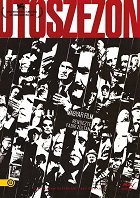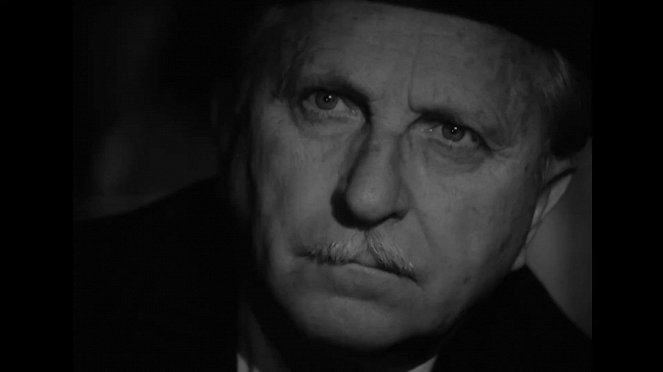Rendező:
Zoltán FábriForgatókönyvíró:
Péter SzászOperatőr:
György IllésZeneszerző:
Szabolcs FényesSzereplők:
Antal Páger, Noémi Apor, Lajos Básti, Sándor Kőmíves, Károly Kovács, József Szendrő, Samu Balázs, János Rajz, Klári Tolnay, János Zách, Gyula Kamarás (több)Tartalmak(1)
A pályaudvari restiben söröző öt öreg nyugdíjas elhatározza, hogy megviccelik távolmaradó társukat, Kerekes patikust. Beidézik a járási főkapitányságra "egy bizonyos ügyben". Kerekes majd szívrohamot kap: most lelepleződött. Fölidéződik a múlt: a háború végén csak annyit mondott barátjának, Holl városparancsnoknak, hogy "hacsak". Ez a szó elődjét, a zsidó származású patikust és feleségét a halálba küldte. Társai hiába nyugtatják, a szenilis öregember bírói vizsgálatot követel maga ellen. (Mokép)
(több)Videók (1)
Recenziók (1)
As a blind spot, sometimes it forces us not to look directly at the thing, but through the perspective of others, so an artistic view sometimes needs a digression through a different genre of life, in order to return to its goal, but not through a traditional dramatic arc: like when the Nouvelle Vague had to express its still immature artistry and novelty through allusions to silent grotesques (perhaps that is where the humorous appeal of the young old people comes from), like when Duras/Resnais update the past in every present without justifying why I wrote present in the first place and not the other way around (explicit metaphysical and intertextual reference by Fábri to Hiroshima, and not the only one!) or in the extreme, like when the Slaughterhouse-Five pass through the past of war massacres through the future of space sci-fi (the overall 1960s zeitgeist of the film, made by a slow aging Horthy, war, and Sorella!). Similarly, the line between trauma and the present cannot be direct, but jerky - memory games as a choppy cut. As a Robbe-Grilletian, I must remark that it would be a big coincidence if in this film about a man who lied his whole life, there were no anticipatory games with frozen images and frames connected with scenes from a pharmacy partially used as inspiration in the film The Man Who Lies, which was made a year later in (Czech) Slovakia, just beyond Fabri's Hungary.
()


